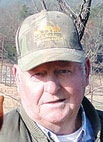 Margo Hale works to provide assistance in sustainable agriculture
Margo Hale works to provide assistance in sustainable agriculture
One has only to visit with Margo Hale a short time before realizing she is totally focused on one mission, to promote sustainable agriculture.
Margo is the Southeast Regional Director for the National Center for Appropriate Technology (NCAT) and in that position, Margo spearheads the dissimulation of a vast array of information to farmers practicing sustainable agriculture.
Established during the oil crisis of the 1970s, the non-profit organization has been “championing small-scale, local and sustainable solutions to reduce poverty, promote healthy communities and protect natural resources.”
While the mission of NCAT is broad, it accomplishes its goal through associations with several other non-profits and organizations that share the same goals. That is the environment in which Margo thrives. As director of the southeast regional office of NCAT in Fayetteville, Ark., Margo, along with a technical staff of six, oversees the implementation research-based technical assistance and information in the fields of sustainable agriculture, sustainable energy, and community development.
“Not only do we dissimilate volumes of information. Our technical staff works hand in hand with farmers, government agencies, individuals, and a host of others to insure they maximize sustainable practices,” Margo said.
One of the major projects Margo and her staff work with is Appropriate Technology Transfer for Rural Areas (ATTRA). For more 20 years, ATTRA has served as the premier resource of information about sustainable agriculture for farmers. ATTRA is funded by the USDA’s Rural Business Cooperative Service under the 1987 Farm Bill. The project has produced over 200 different publications, answered hundreds of thousands of phone calls, and hosted more than a million visits per year to its website.
“The interest in sustainable agriculture is huge, and each region of the country is unique,” Margo explained. “The geography, the economics, the population density and a host of others. The regions are different, yet the demand for sustainability is overwhelming. Thus, the need for seven regional offices to dissimulate the technology and to handle the demand.”
Some of the topics addressed include organic crop and vegetable production, agricultural energy, soils and compost, livestock and marketing. ATTRA publications discuss issues ranging from biodiesel production to pest management, as well as offering specific information on sustainable production for a wide variety of crops and livestock.
One of the major projects NCAT is involved with is Armed to Farm, agricultural training for military veterans. Since 2010 NCAT has been involved in targeting veteran outreach and assistance. To date NCAT has hosted more than 17 veteran focused training sessions reaching over 800 veterans across the United States.
NCAT has also partnered with other organizations such as the Farmer Veteran Coalition, Growing Warriors, the University of Arkansas, and the USDA Ag Research Service to train veterans in sustainable agriculture careers. Training sessions are provided at no cost to the veterans. The only cost to the veterans participating is transportation to and from the sessions.
“Working with the veterans and seeing the success stories is the most rewarding part of my job,” Margo said. “When you consider the sacrifices these people made for their country, Armed to Farm is just one small way of repaying them for their service.”







